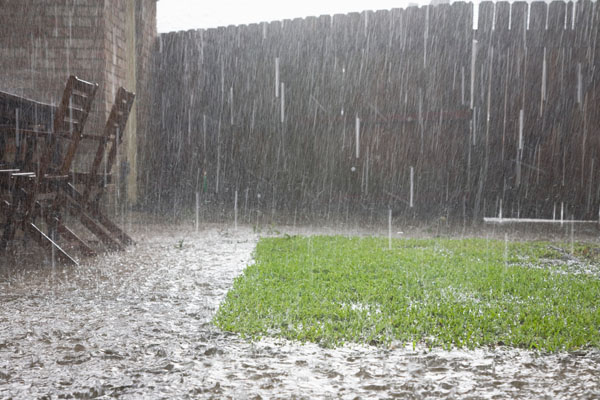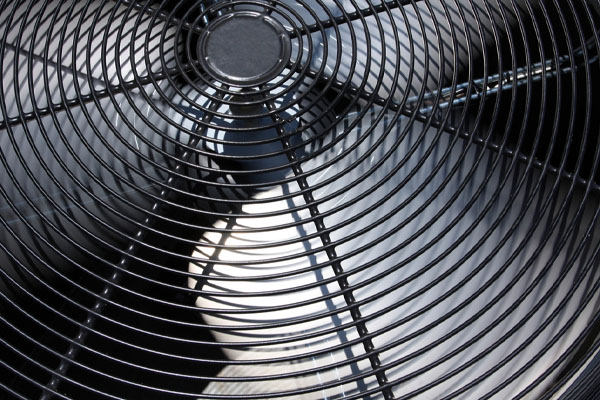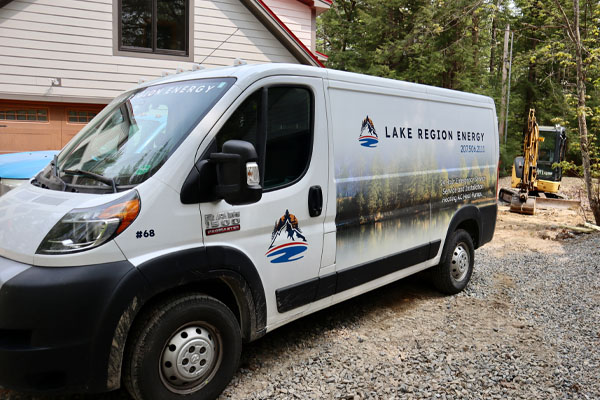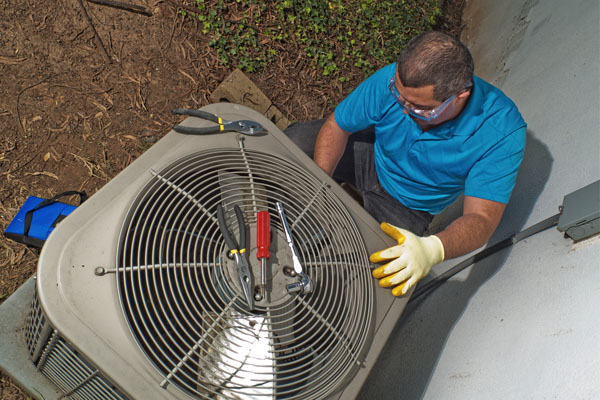Table of Contents
The development of air conditioner condenser rust is a concern that directly affects their efficiency and lifespan. Rust reduces the effectiveness of the condenser and impairs heat transfer, potentially causing system failures. This article will examine the important aspects of rust on air conditioner condensers.
We will focus on identifying the causes, assessing how it diminishes cooling capabilities, and outlining successful strategies to prevent its occurrence. Understanding the significance of rust on air conditioner condensers is fundamental for sustaining peak functionality and prolonging the service life of your cooling systems.
Air Conditioner Condenser Rust: Causes & Prevention Tips
We’ll focus on the causes of air conditioner condenser rust, its effects on performance, professional removal techniques, and prevention strategies.
Primary Factors Leading to Rust on AC Condensers
Rust, also known as iron oxide, forms through a reaction involving iron, oxygen, and water. This process can affect air conditioner condensers in various ways. Key contributors include:
Moisture Exposure

Air conditioner condensers are regularly exposed to atmospheric moisture. If water accumulates and remains on the condenser coils for extended periods, it significantly increases the likelihood of air conditioner condenser rust development.
Environmental Exposure
Being positioned outdoors, condensers are inevitably exposed to various harsh weather elements, including rain, snow, and extreme temperatures. This constant exposure can hasten the rusting process.
Corrosive Surroundings
The installation location of an air conditioner condenser also plays a role. Areas with high concentrations of pollutants, chemicals, or saltwater can escalate the risk of rust formation on the unit.
Neglected Maintenance
Inadequate or infrequent maintenance can lead to dirt, debris, and moisture buildup on the condenser, creating an ideal setting for rust to develop.
Physical Damage
Damage to the condenser, like dents or scratches, can breach its protective coating. This leaves the underlying metal exposed and more susceptible to rusting.
Impact of Rust on the Air Conditioning System’s Performance

Rust can substantially impair the functionality of AC systems, particularly in terms of cooling efficiency. Here’s a closer look at its effects:
- Impeded Heat Transfer: When rust forms on condenser coils, it acts as an insulating barrier. This barrier disrupts the efficient heat transfer between the air passing over the coils and the refrigerant within. Consequently, the condenser’s ability to expel heat is diminished, leading to a noticeable decrease in cooling effectiveness.
- Hindered Air Circulation: Rust can distort or block the fins or blades of the condenser, leading to obstructed airflow. This limitation in air movement affects the system’s heat dissipation capacity. As a result, the AC system’s cooling ability is weakened, and maintaining the set temperature becomes more challenging.
- Increased Air Conditioner System Strain: The presence of rust on the condenser impacts both heat transfer and airflow. To compensate, the air conditioning system must operate longer and exert more effort to cool effectively. This elevates energy usage and adds extra strain on the system, raising the risk of malfunctions or complete breakdowns.
- Reduced System Longevity: Rust expedites the corrosion of the condenser, leading to enduring damage. This corrosion weakens the structural strength of the coils and other critical components, thereby diminishing the overall lifespan of the air conditioning system.
Ensure optimal performance and longevity for your cooling system – contact Lake Region Energy today for expert rust management on your AC condenser.
How An HVAC Professional Removes Rust from Your Outdoor AC Unit

Eliminating rust on an AC condenser is a delicate process requiring expert handling to prevent additional damage. Engaging a qualified HVAC professional is crucial for safe and effective rust removal. DIY attempts might cause more harm or pose safety risks. Below is an outline of how an HVAC company proficiently tackles rust on your AC condenser:
- Air Conditioning System Examination: The initial step taken by the HVAC professional involves a comprehensive inspection of the condenser unit to gauge the severity of the rust damage. This assessment helps them discern whether the rust is merely surface-level or if it has led to deeper structural or functional issues.
- Air Conditioner Rust Remediation: Based on the extent of the rust, the HVAC expert will utilize specific methods for treatment. These can range from specialized rust dissolvers and converters to abrasive techniques for rust removal. Such procedures demand meticulous execution and skilled knowledge to prevent harm to the condenser’s sensitive parts.
- Application of Protective Layer: After the rust removal, the HVAC technician applies a protective coating or paint to the condenser. This layer safeguards the condenser against moisture and environmental elements contributing to rust formation.
- Component Evaluation & Replacement: The HVAC contractor will meticulously inspect the internal components of the condenser to confirm they remain unaffected by rust. In cases where vital parts such as coils or fins have endured considerable damage, the technician may suggest replacements to ensure peak performance and efficiency.
- HVAC Maintenance & AC Unit Rust Prevention: Post rust remediation, the HVAC contractor will offer guidance on continuous maintenance practices to avert future rust development. These recommendations may include regular cleaning, periodic inspections, and adequate drainage to reduce moisture buildup.
Don’t let rust compromise your AC’s efficiency – reach out to Lake Region Energy for professional solutions tailored to your needs.
Strategies for Preventing Rust to Protect Your Air Conditioning System
Taking proactive steps can greatly diminish the likelihood of rust development, safeguarding the efficiency and lifespan of your air conditioning unit. Below are some effective preventive measures:
Consistent Cleaning of the Air Conditioner

Regularly cleaning the condenser coils and fins is crucial to eliminate dirt, debris, and other elements that can retain moisture and hasten rust development. Employing a soft brush or vacuum cleaner can gently remove this accumulation. For optimal results, hire an HVAC technician for professional and comprehensive cleaning, ensuring the task is performed effectively.
Efficient Drainage for AC Units
Ensure that the AC’s condensate drain lines are clear and operational, a task best handled by your HVAC technician. Proper drainage helps prevent water accumulation around the condenser, thus reducing rust risk.
Scheduled Maintenance of Air Conditioning
Regularly schedule maintenance checks with HVAC professionals. These experts can inspect the condenser for rust or corrosion, execute needed repairs, thoroughly clean the coils, and offer advice to avert future rust-related problems.
Protective Air Conditioner Coatings
Apply protective coatings or anti-corrosion sprays to the condenser’s metal surfaces to guard against moisture and rust. Consult a professional for the right coating or treatment for your specific condenser model.
Sheltering the AC System
A shelter or enclosure can shield the condenser from harsh weather elements like rain, snow, or intense sun, reducing moisture accumulation and extending the unit’s lifespan. However, consult an HVAC expert to ensure the shelter doesn’t restrict airflow to the unit.
Thoughtful Condenser Placement
Select a location for the condenser during installation that minimizes exposure to corrosive conditions, like areas high in pollutants and chemicals or near saltwater.
Immediate HVAC Repairs
Act swiftly if you detect rust or corrosion on the condenser. Engage your HVAC specialist to repair or replace affected parts, preventing further rust and avoiding potential system breakdowns.
Take proactive steps to protect your AC from rust damage – contact Lake Region Energy for reliable maintenance and preventive strategies today!
Conclusion
Effectively managing air conditioner condenser rust is crucial for optimal system performance and longevity. Rust adversely affects heat transfer, airflow, and cooling efficiency. While DIY approaches can be useful, employing an HVAC professional is essential for safe and effective rust removal.
These experts possess the necessary tools, skills, and experience. They can accurately evaluate rust damage, conduct appropriate repairs, and suggest preventive actions to avert future rust formation. Relying on a professional ensures the condenser is handled delicately, reducing the chance of additional damage and enhancing the system’s efficiency and lifespan.
Call Lake Region Energy For All Your HVAC Requirements
Lake Region Energy is your go-to expert for heating and cooling solutions in Maine and New Hampshire. Our professionally certified team excels in HVAC maintenance, repairs, installations, and replacements, ensuring top-quality service for every client.
Understanding the need for a comfortable, energy-efficient home, Lake Region Energy offers competitively priced services. Our maintenance programs aim to boost comfort and cut energy costs. Our experts can guide you to the right solutions for any HVAC repairs or replacements within your budget. We guarantee satisfaction with our work. Contact us to arrange a service appointment and receive a free in-home estimate.
For more information about our fuel deliveries and HVAC services, be sure to contact Lake Region Energy. You can click here to contact us, or you can call us at (207) 839-5500 to find out more. We offer a full line of heating and cooling repairs, maintenance services, and installations. Click the link to view our service area.

Related Articles:
